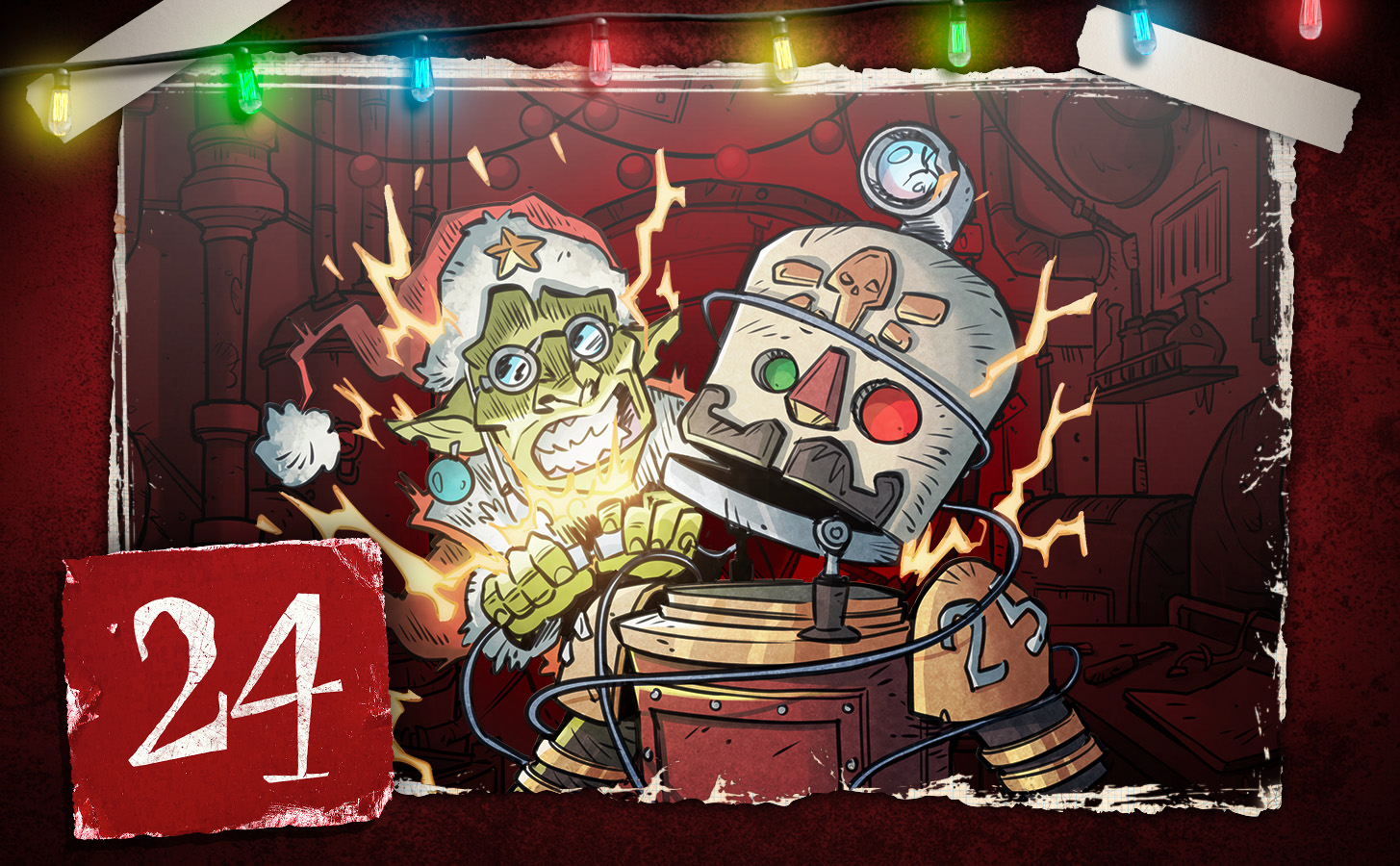The Grotmas Calendar has covered a wide range of things, from fiction to free missions and painting guides. Da Red Gobbo is the central thread that ties them all together. A mischievous miscreant who pilfers stuff from all over the shop.
And today…

The Grotmas Calendar has covered a wide range of things, from fiction to free missions and painting guides. Da Red Gobbo is the central thread that ties them all together. A mischievous miscreant who pilfers stuff from all over the shop.
And today…